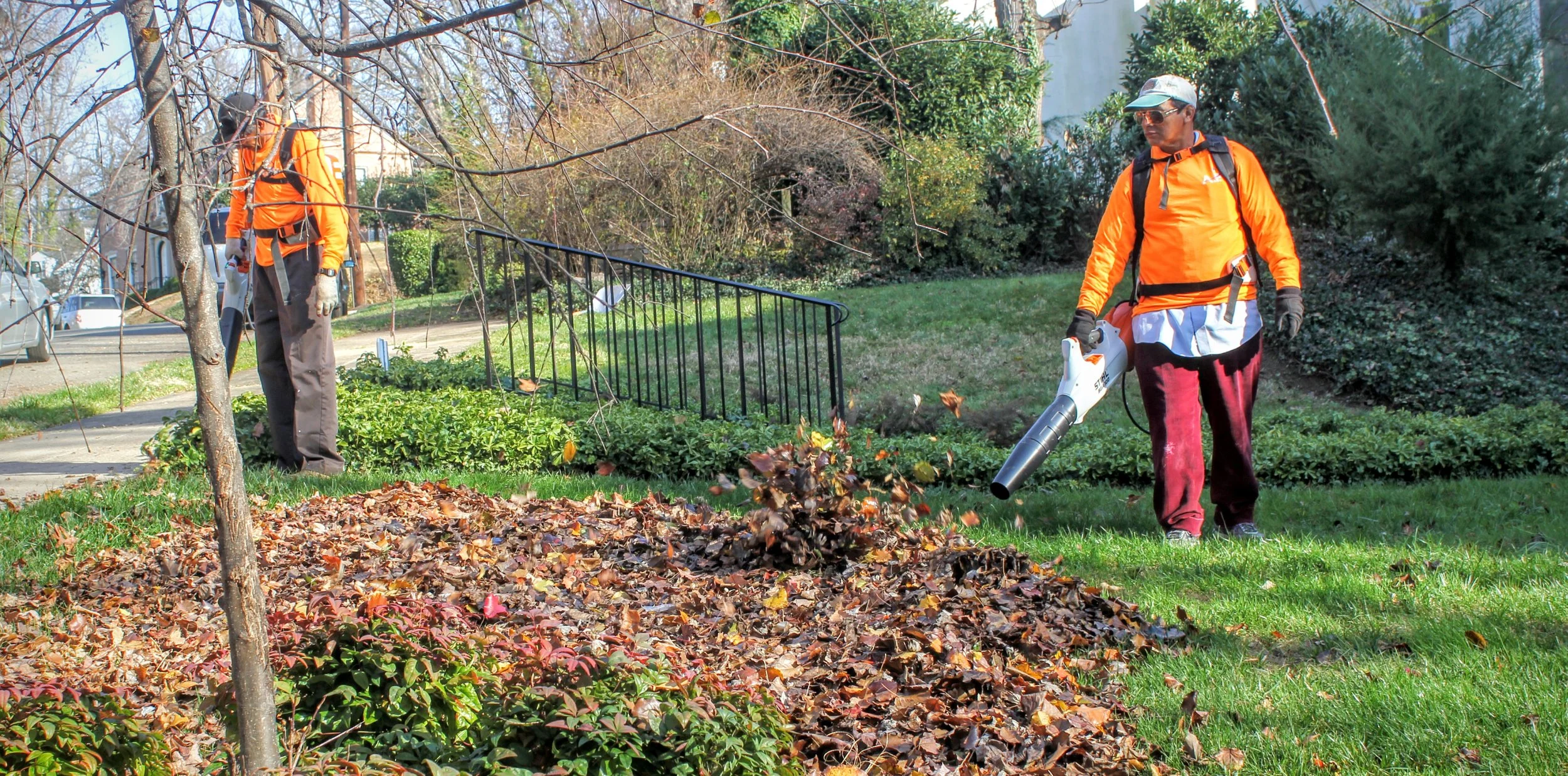From the D.C. Council Committee of the Whole Hearing on July 2, 2018. testimony of John G. "Grif" Johnson:
Mendelson: Thank you Mr. Mann. Mr. Johnson?
Johnson: Good afternoon, Mr. Chairman and members of this Committee. I'm Grif Johnson, I'm one of the founders of Quiet, Clean DC. We're a group of concerned DC residents who are worried about a significant problem in our city, and indeed, all around the country. That problem is the invasive, harmful noise generated by the gas-powered leaf blower. I also wanted to thank you, Mr. Chairman, for convening this hearing, and I want to thank Councilmember Cheh for introducing the bill that's under consideration today. And Councilmembers Bonds, Grosso, McDuffie, and Allen for co-sponsoring the bill. We also want to thank those additional Councilmembers who have assured us of their support for the legislation.
The bill in question will amend the District of Columbia Noise Control Act of 1977. That act stated that chief among its purposes are, and I quote, "To preserve, protect, and promote ... the peace and comfort of inhabitants in the city." Subsequent to the 1977 act, the Council in 1992 adopted a regulation that addresses leaf blowers, specifically. That regulation limits both their hours of operation and their noise output to no more than 70 decibels at a distance of 50 feet.
But the regulation doesn't work. As you'll hear today from witnesses who support this bill, your constituents across the District are up in arms over the deprivation of their peace and comfort from excessively noisy gas-powered leaf blowers. More than a quarter of the advisory neighborhood commissions in DC, representing 7 of our city's 8 wards, have adopted resolutions endorsing this bill. Over 2,300 individuals have signed an online petition urging the Council to move forward on this bill. We hear it from every corner of the city: "Stop. The. Noise."
Why doesn't the current regulation work? Because it requires for its effective enforcement that an appropriate agent for the DC government must verify the operation of a leaf blower above the 70 decibel limit, and beyond the 50-foot distance. That means the enforcing agent must come to the scene of the violation while it's underway, and armed with a sound meter and a distance-measuring tool, for which he would need to have been specially trained, then confirm the violation. It simply is impractical for all of that to happen before the operator of the violating equipment will have ceased such operation, or will have moved on to another property, where he'll engage in a new violation.
And there's another reason why the current regulation is ineffective. That's because the regulation relies solely on sound measurements in decibels. That approach overlooks the most offensive element of noise produced uniquely by leaf blowers that are powered by gas. As you'll hear in a few minutes, research that my colleagues on this panel, Mr. Pollock and Dr. Banks, will present to you this afternoon, establishes that what differentiates the gas blowers noise is a very strong, low-frequency component that a battery-powered blower, having an identical decibel rating as the gas blower, doesn't generate at the same strength level. That powerful, low-frequency element is the source of the greatest offense to the human ear. These complaints all relate to noise from gas-powered leaf blowers.
The blowers generate not only high levels of the most disturbing low-frequency sound components, but also enormous decibel outputs, well above the limits for safe human exposure. The Centers for Disease Control and Prevention last year published a finding that two hours of exposure to a leaf blower operating at 85 decibels will cause hearing loss. And hearing loss is permanent. Once your hearing is gone, you can't get it back. The defenders of these thunderous gas blowers actually brag about them. Consider an article recently published in OPEReviews.com, an online publication for the landscaping industry. The article gets right to the point. Here are the first two sentences. "What does it feel like to have Hurricane Irma strapped to your shoulders? Donning any of the leading backpack blowers will give you a close representation,"
The article notes that seven models of the most popular gas blowers deliver sound at the operator's ear of between 101 and 104 decibels. Decibels are measured logarithmically, so that a difference of as little as three decibels represents a doubling of the sound's energy. We're talking about noise that's several orders of magnitude above the CDC limit of 85 decibels, and that's at the ear of the operator.
Proponents of the gas blower claim that a so-called quieter gas blower is now available. In a few moments, you'll hear Mr. Pollock play for you an audio clip of this supposedly quiet gas blower, which includes that low-frequency component that's so uniquely powerful with gas blowers, and not with the battery blower. You can decide for yourself in just a minute whether the so-called gas, so-called “quiet gas blower”, is indeed quiet.
In reality, very few landscaping contractors are using this much-ballyhooed quiet gas blower. In an Op-Ed published in January in TotalLandscapeCare.com, which is another online publication for landscapers, one of the leading advocates for gas blowers pleads with landscape contractors to start using the supposedly quiet gas blower, or else cities like ours will adopt laws to phase out gas blowers altogether. And we hope you will.
So, returning to our current regulation on gas blowers, it's unworkable as I said because it can't be effectively enforced. But a law that simply bans all gas blowers won't be difficult to enforce because a gas blower can be easily identified visually, without the need for taking measurements of decibels and distances. And a ban on gas blowers will free all of us from having to endure that powerful and aggressive low-frequency noise element that the gas blower emits. That's why we support this bill. It will work. Thank you, Mr. Chairman.
